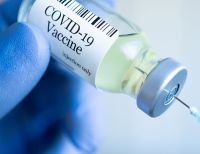28 May 2024
 Thousands of Australians struggle with serious mental health conditions. But when the recommended treatment involves antipsychotic medications, the side effects are excess kilos, which only adds weight to an already complex diagnosis.
Thousands of Australians struggle with serious mental health conditions. But when the recommended treatment involves antipsychotic medications, the side effects are excess kilos, which only adds weight to an already complex diagnosis.
Now, world first research from the University of South Australia shows that antipsychotics can be reformulated with a strategically engineered coating that not only mitigates unwanted weight gain but also boosts serotonin levels by more than 250%.
Funded by the Hospital Research Foundation (THRF) Group, researchers specifically tested Lurasidone, a drug used in the treatment of schizophrenia and bipolar depression, finding that the new coatings target the gut microbiome to improve drug absorption by 8-fold, while concurrently overcoming common side effects such as weight gain.
The coatings are created from tiny core-shell particles made from the dietary fibre, inulin, and bioactive medium chain triglycerides. The inulin shell boosts the gut microbiome by providing an energy source for gut bacteria, while the medium chain triglycerides facilitate drug absorption into the bloodstream.
It’s a breakthrough discovery that has the potential to change the lives of millions of people worldwide.
Lead researcher UniSA’s Dr Paul Joyce says microbiota-targeting microcapsules have the potential to improve treatment outcomes of mental health medications.
“Most patients suffering from schizophrenia or bipolar disorder are prescribed a range of antipsychotic medications, which trigger significant adverse effects by disrupting the gut microbiome – the microbial ecosystem that naturally colonises the gut,” Dr Joyce says.
“The most notable side effect is weight gain, with many patients often seeing increases of between 10-15% of their body weight after just three months of treatment.
“Because the gut microbiome plays a major role in regulating overall health, especially mood and cognition, the detrimental impact of these medications on the microbiome often makes them counterproductive.

THe strategically engineered coating mitigates unwanted weight gain and boosts serotonin levels by more than 250%.
“Instead of improving mood and cognition, the medication leads to a cascading cycle of poor mental and metabolic health as patients now struggle with excess weight and mental health issues.
“To make matters worse, most antipsychotics need to be consumed with food to maximise their effect. Yet for a very vulnerable patient population, ensuring this happens is challenging, with most patients gaining suboptimal drug levels.
“Clearly, new strategies are needed to eliminate side effects and the need for these medications to be taken with food – and that’s exactly what we’ve achieved with the drug Lurasidone.
“This research shows that when antipsychotic drugs are formulated with our new smart core-shell microparticles, drug absorption increases, mitigating the need for the medication to be consumed with food, while also boosting the diversity and abundance of the gut microbiome to overcome common side effects, such as weight gain.
“Importantly, because we are not developing new drugs, rather reformulating them, the new therapies can be fast-tracked for clinical use, so we could expect them within the next few years rather than the 10-15 years needed for new drug molecules to be approved by regulatory bodies.”
Next steps are to test the efficacy of these re-formulated therapies within human patients, with longer term goals being to extend these technologies across all mental health therapies, including anti-depressants, to mitigate any adverse effects.
Notes to editors:
The research papers connected to this research are:
Srinivas Kamath, Alexander Hunter, Kate Collins, Anthony Wignall and Paul Joyce, The atypical antipsychotic lurasidone positively modulates the gut microbiota in rats: A comparative study to olanzapine. bioRxiv, 2024.
………………………………………………………………………………………………………………………
Media contact: Annabel Mansfield M: +61 479 182 489 E: [email protected]
Researcher: Dr Paul Joyce E: [email protected]
















